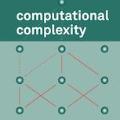The computational complexity of simulating quantum many-body systems generally scales exponentially with the number of particles. This enormous computational cost prohibits first principles simulations of many important problems throughout science, ranging from simulating quantum chemistry to discovering the thermodynamic phase diagram of quantum materials or high-density neutron stars. We present a classical algorithm that samples from a high-temperature quantum Gibbs state in a computational (product state) basis. The runtime grows polynomially with the number of particles, while error vanishes polynomially. This algorithm provides an alternative strategy to existing quantum Monte Carlo methods for overcoming the sign problem. Our result implies that measurement-based quantum computation on a Gibbs state can provide exponential speed up only at sufficiently low temperature, and further constrains what tasks can be exponentially faster on quantum computers.
翻译:暂无翻译



